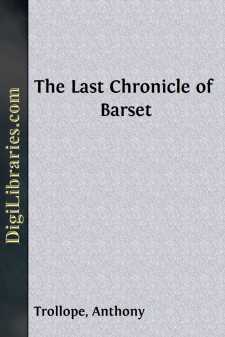Categories
- Antiques & Collectibles 13
- Architecture 36
- Art 48
- Bibles 22
- Biography & Autobiography 815
- Body, Mind & Spirit 144
- Business & Economics 28
- Children's Books 18
- Children's Fiction 14
- Computers 4
- Cooking 94
- Crafts & Hobbies 4
- Drama 346
- Education 58
- Family & Relationships 59
- Fiction 11835
- Games 19
- Gardening 17
- Health & Fitness 34
- History 1378
- House & Home 1
- Humor 147
- Juvenile Fiction 1873
- Juvenile Nonfiction 202
- Language Arts & Disciplines 89
- Law 16
- Literary Collections 686
- Literary Criticism 179
- Mathematics 13
- Medical 41
- Music 40
- Nature 180
- Non-Classifiable 1768
- Performing Arts 7
- Periodicals 1453
- Philosophy 65
- Photography 2
- Poetry 896
- Political Science 203
- Psychology 44
- Reference 154
- Religion 515
- Science 126
- Self-Help 85
- Social Science 83
- Sports & Recreation 34
- Study Aids 3
- Technology & Engineering 60
- Transportation 23
- Travel 463
- True Crime 29
Our website is made possible by displaying online advertisements to our visitors.
Please consider supporting us by disabling your ad blocker.
The Warden
by: Anthony Trollope
Description:
Excerpt
Chapter I
Hiram's Hospital
The Rev. Septimus Harding was, a few years since, a beneficed clergyman residing in the cathedral town of ––––; let us call it Barchester. Were we to name Wells or Salisbury, Exeter, Hereford, or Gloucester, it might be presumed that something personal was intended; and as this tale will refer mainly to the cathedral dignitaries of the town in question, we are anxious that no personality may be suspected. Let us presume that Barchester is a quiet town in the West of England, more remarkable for the beauty of its cathedral and the antiquity of its monuments than for any commercial prosperity; that the west end of Barchester is the cathedral close, and that the aristocracy of Barchester are the bishop, dean, and canons, with their respective wives and daughters.
Early in life Mr Harding found himself located at Barchester. A fine voice and a taste for sacred music had decided the position in which he was to exercise his calling, and for many years he performed the easy but not highly paid duties of a minor canon. At the age of forty a small living in the close vicinity of the town increased both his work and his income, and at the age of fifty he became precentor of the cathedral.
Mr Harding had married early in life, and was the father of two daughters. The eldest, Susan, was born soon after his marriage; the other, Eleanor, not till ten years later.
At the time at which we introduce him to our readers he was living as precentor at Barchester with his youngest daughter, then twenty-four years of age; having been many years a widower, and having married his eldest daughter to a son of the bishop a very short time before his installation to the office of precentor.
Scandal at Barchester affirmed that had it not been for the beauty of his daughter, Mr Harding would have remained a minor canon; but here probably Scandal lied, as she so often does; for even as a minor canon no one had been more popular among his reverend brethren in the close than Mr Harding; and Scandal, before she had reprobated Mr Harding for being made precentor by his friend the bishop, had loudly blamed the bishop for having so long omitted to do something for his friend Mr Harding. Be this as it may, Susan Harding, some twelve years since, had married the Rev. Dr Theophilus Grantly, son of the bishop, archdeacon of Barchester, and rector of Plumstead Episcopi, and her father became, a few months later, precentor of Barchester Cathedral, that office being, as is not unusual, in the bishop's gift.
Now there are peculiar circumstances connected with the precentorship which must be explained. In the year 1434 there died at Barchester one John Hiram, who had made money in the town as a wool-stapler, and in his will he left the house in which he died and certain meadows and closes near the town, still called Hiram's Butts, and Hiram's Patch, for the support of twelve superannuated wool-carders, all of whom should have been born and bred and spent their days in Barchester; he also appointed that an alms-house should be built for their abode, with a fitting residence for a warden, which warden was also to receive a certain sum annually out of the rents of the said butts and patches....












